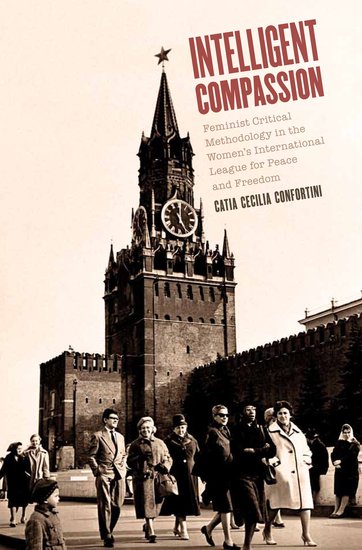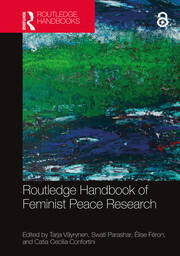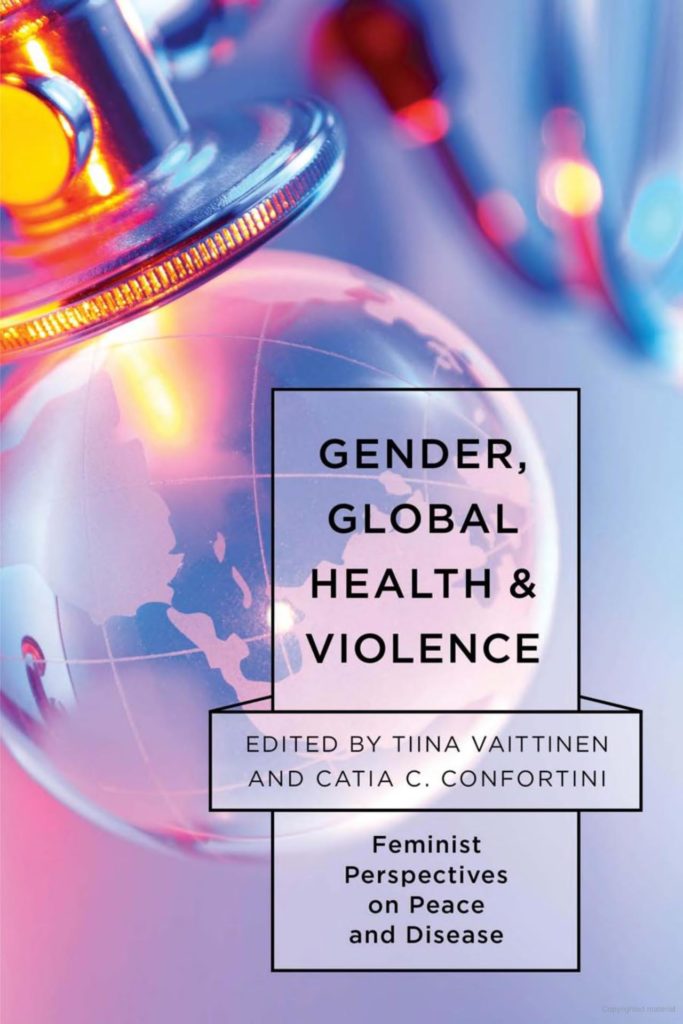Publications
Books
Intelligent Compassion: Feminist Critical Methodology in the Women’s International League for Peace and Freedom
Catia C. Confortini
New York: Oxford University Press, 2012
Finalist: 2014 J. Ann Tickner Book Prize, USC School of International Relations.
Published reviews: Cambridge Review of International Affairs, e-International Relations, Women’s History Review, Peace & Change, Political Studies Review, Women and Social Movements in the United States.
Intelligent Compassion traces changes in ideas and policies of the Women’s International League for Peace and Freedom (WILPF—the longest-living international women’s peace organization) over a thirty-year period, from 1945 to 1975. Focusing on three areas of the organization’s work (namely disarmament, decolonization, and the conflict in Israel/Palestine), the book addresses the agent-structure problem in international relations, specifically asking to what extent activists can transcend the practices of their era given that they are also shaped by them. Inspired by a feminist tradition that sees activists as theorists, this book finds answers to this question in the theoretical practices of WILPF. Through a cross-disciplinary approach involving peace studies, feminist studies, international relations, social movement theory, and history, this book shows that WILPF’s early understandings of peace were grounded in liberal modern principles and inscribed in the postwar international order. Gradually, WILPF began identifying the limitations of its ideological foundations and the international liberal order and formulating policies based on this critique. A detailed examination of the primary economic and security issues of the time as well as WILPF’s internal debates and normative struggles highlights how its theoretical practice made these policy and ideological shifts possible. The women of WILPF practiced a theoretically informed critical methodology to challenge the political, economic, and social milieu in which they operated. They thus moved away from a postwar liberal zeitgeist toward a more emancipatory vision of peace.
Handbook of Feminist Peace Research
Tarja Väyrynen, Swati Parashar, and Élise Féron, and Catia C. Confortini (Editors)
London and New York: Routledge, 2021
Featured in Opinion Peace podcast from UiT, Arctic University of Norway on 03/02/21.
The Handbook of Feminist Peace Research provides a comprehensive overview of feminist approaches to questions of violence, justice, and peace.The volume argues that critical feminist thinking is necessary to analyse core peace and conflict issues and is fundamental to thinking about solutions to global problems and promoting peaceful conflict transformation. Contributions to the volume consider questions at the intersection of feminism, gender, peace, justice, and violence through interdisciplinary perspectives. The handbook engages with multiple feminisms, diverse policy concerns, and works with diverse theoretical and methodological contributions.
The volume covers the gendered nature of five major themes:
- Methodologies and genealogies (including theories, concepts, histories, methodologies)
- Politics, power, and violence (including the ways in which violence is created, maintained, and reproduced, and the gendered dynamics of its instantiations)
- Institutional and societal interventions to promote peace (including those by national, regional, and international organisations, and civil society or informal groups/bodies)
- Bodies, sexualities, and health (including sexual health, biopolitics, sexual orientation)
- Global inequalities (including climate change, aid, global political economy).
Gender, Global Health, and Violence: Feminist Perspectives on Peace and Disease
Tiina Vaittinen and Catia C. Confortini (Editors)
London and New York: Rowman & Littlefield International, 2020
Reviewed in London School of Economics’ Women, Peace, and Security Blog (see below), International Feminist Journal of Politics, and DEP Deportate, Esuli Profughe: Rivista Telematica sulla Memoria Femminile.
Beyond the metaphorical use of healthy society as a normative goal of Peace Research, there is little engagement in contemporary Peace Research with questions of global health. Simultaneously, critical feminist approaches to the intersections of different forms of violence and health are rare in Global Health literature. Bringing together feminist Peace Research and Global Health scholarships, Gender, Global Health, and Violence aims to enrich both scholarly traditions. On the one hand, the book provides perspectives from feminist Peace Research that help us to understand and analyse different forms of violence in the gendered realm of global health. On the other hand, the variety of empirical cases analysed in the chapters widens the horizons of Peace Research, in its understanding of what it means to study violence, peace, and justice in everyday lives.
The themes dealt in the chapters of the book vary from questions of reproductive health, to non-communicable (e.g. breast cancer) and communicable diseases (e.g. HIV/AIDS), war-time sexual violence, mental health, therapeutic justice, domestic violence, and ageing and dementia.


